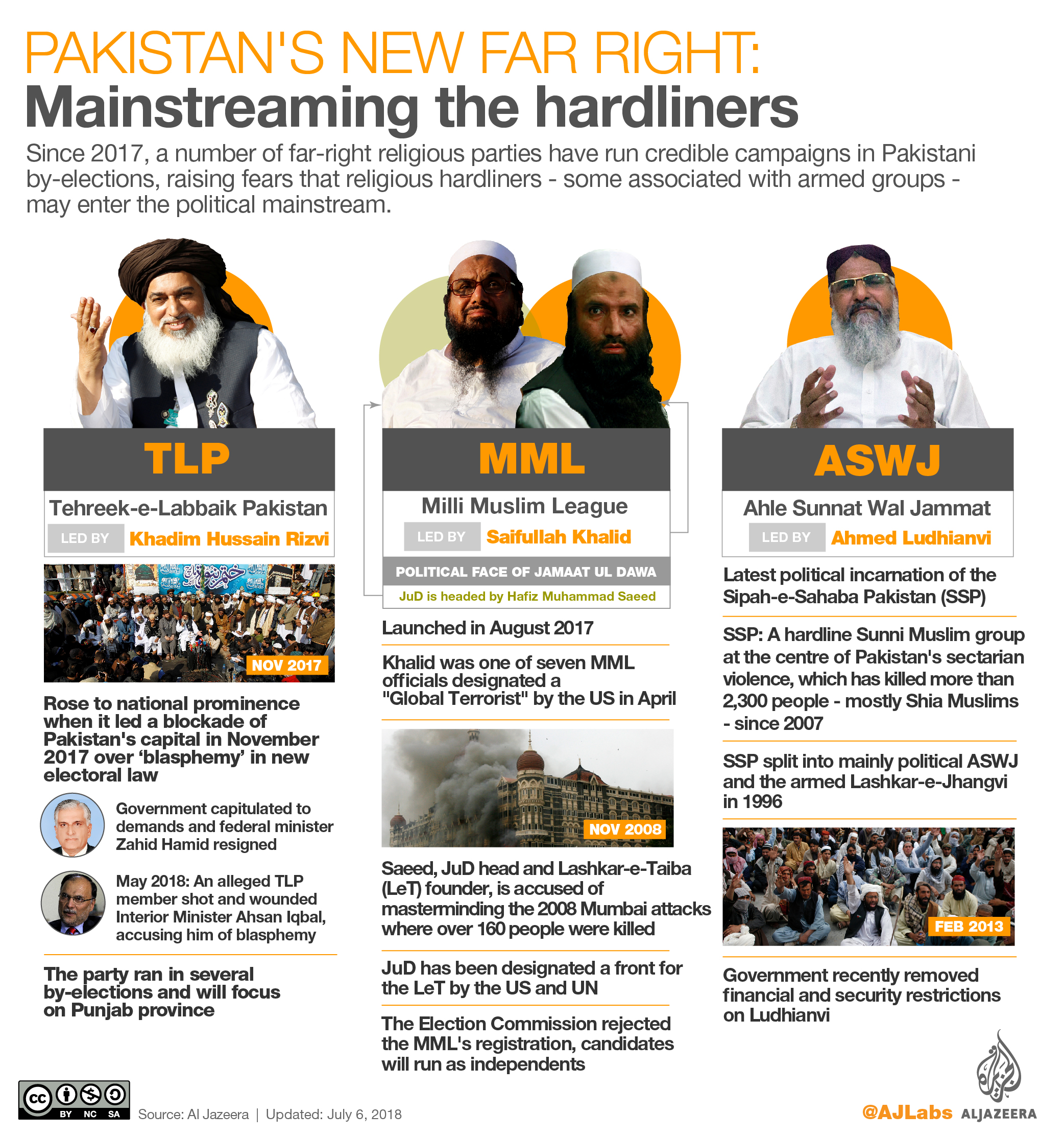By Alia Chughtai & Asad Hashim
Who is behind the hardline religious parties gaining momentum ahead of upcoming elections?
Since 2017, a number of far-right religious parties have run credible campaigns in Pakistani by-elections, raising fears that religious hardliners - some associated with armed groups - may enter the political mainstream.
Tehreek-e-Labbaik Pakistan (TLP)
Led by firebrand far-right cleric Khadim Hussain Rizvi, Tehreek-e-Labbaik Pakistan rose to national prominence when it blockaded a major motorway into the Pakistani capital, Islamabad, for three weeks last year, protesting a change to the electoral law that they deemed blasphemous. The government capitulated to TLP's demands, including the resignation of a federal minister.
In May 2018, a man claiming to be a TLP member shot and wounded Ahsan Iqbal, Pakistan's interior minister, accusing him of blasphemy. The party has fought several by-elections and will be targeting Punjab province.
Milli Muslim League (MML)
Launched in August 2017, the Milli Muslim League is headed by Saifullah Khalid, who was among seven party leaders named in April on a US terrorist sanctions list.
MML is the political face of the Jamaat-ud-Dawa (JuD) humanitarian organisation, which has been designated a front for the Lashkar-e-Taiba armed group by the United Nations and the United States.
JuD is headed by Hafiz Muhammad Saeed, the alleged mastermind behind the 2008 Mumbai attacks, which killed more than 160 people in the Indian port city. The party's registration has so far been rejected by the Election Commission, and its candidates will likely stand as independents.
Ahle Sunnat Wal Jammat (ASWJ)
The Ahle Sunnat Wal Jammat (ASWJ) is the latest political incarnation of the Sipah-e-Sahaba Pakistan (SSP), a Sunni hardline group which has been linked to sectarian violence that killed more than 2,300 people - most of them Shia Muslims - since 2007.
The SSP broke apart into the mainly political ASWJ and the armed Lashkar-e-Jhangvi (LeJ) in 1996.
Both are banned and classified as terrorist organisations under Pakistani law, but ASWJ candidates have openly stood for elections for more than a decade. LeJ has carried out a wave of shootings and bombings targeting Pakistan's Shia minority, with recent attacks focused on Balochistan province.
 |

No comments:
Post a Comment